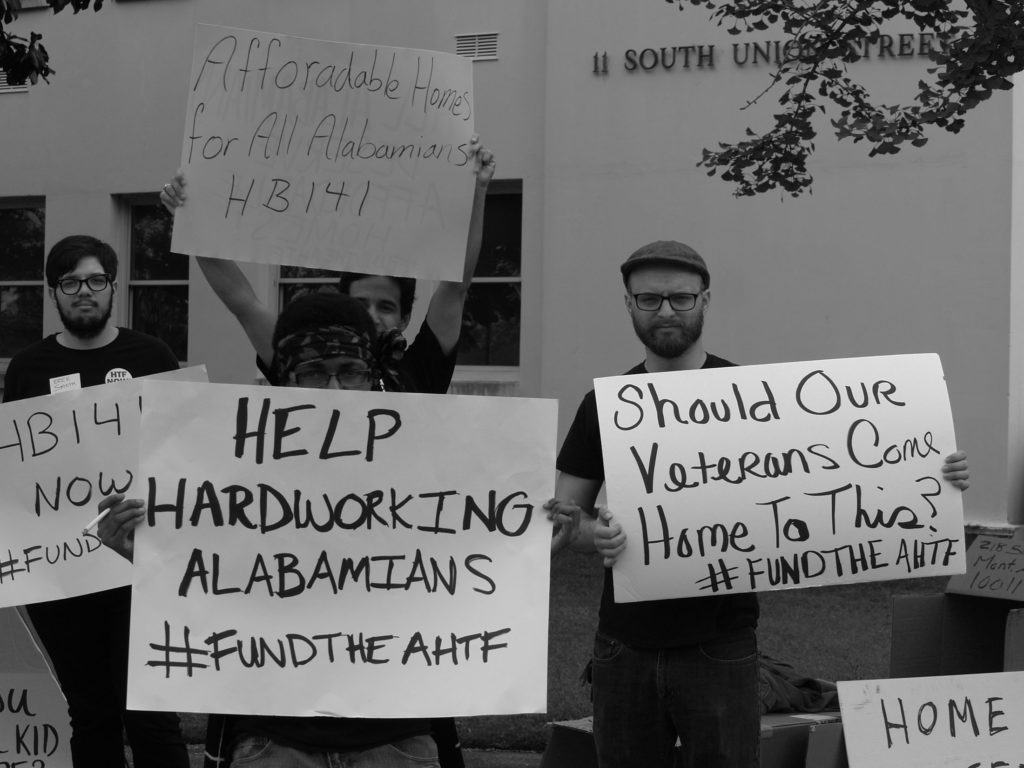Every year, underregulated payday lenders drain tens of millions of dollars from Alabama communities. These financial predators use some of that money to pay a fleet of lobbyists and fund legislative campaigns against reform. They have preserved the status quo even though nearly three in four Alabamians support abolishing predatory payday loans.
There are more payday and auto title lenders in Alabama than hospitals, high schools, movie theaters and county courthouses combined. Their business model depends on churning a profit out of desperate, financially fragile customers. And Alabama provides them with plenty. About 15% of Alabamians – nearly one in seven people in our state – live at or below the poverty line.
Payday lenders are on track to pull about $1 billion in fees out of Alabama communities over the next decade. Nearly all of their profits will flow to out-of-state companies. And these profits come out of the pockets of borrowers who already struggle to make ends meet. Until the Legislature acts, the scourge of predatory payday loans will continue to devastate thousands of family budgets and local economies.
Legalized usury
Many states have interest rate caps that prevent usury in lending generally. But in Alabama, payday loans aren’t governed by state laws that cover other loans. Instead, payday lenders are allowed to charge a $17.50 “loan origination” fee per $100 they lend. At the most common loan period of 14 days, this is an annual percentage rate (APR) of 456%.
Eighteen states and the District of Columbia have abolished predatory payday lending by setting interest rates far below Alabama’s rate. Many of those rate caps are 36% APR, which would match the allowable rate for other loans in Alabama. It also would match the rate cap that Congress set for military members and their families in 2006.
Other Southern states already have recognized the predatory nature of these businesses and stopped these abusive practices. Arkansas and Georgia both prohibit triple-digit interest rates, as the people of Alabama want the Legislature to do.
Straightforward solutions require political will
Alabama has a menu of policy options to protect borrowers and rein in high-cost payday lending. Those solutions include:
- Cap the interest rates on all consumer loans in Alabama at 36% APR. This would broaden the protections that military borrowers already have to our entire population. This is Alabama Arise’s top legislative recommendation on this issue.
- Allow borrowers to pay loans off in installments. This would help people reduce debt more gradually and sustainably instead of forcing them to pay a loan off all at once.
- Cut the fee for originating a loan from the current $17.50 per $100. This change would lessen payday loans’ financial burden on borrowers.
- Require payday lenders to ensure borrowers’ ability to repay before making a loan. This would reduce the risk that borrowers become trapped in cycles of deep debt.
- Give borrowers 30 days to repay payday loans. This would cut the effective APR from 456% for a 14-day loan to about 220% for a 30-day loan.
Bottom line
Momentum for stronger consumer protections is building at the federal level, but a rate cap for payday loans is ultimately up to state lawmakers. Payday lending reform advocates must continue building public pressure and support to protect struggling families and strengthen communities across Alabama.


